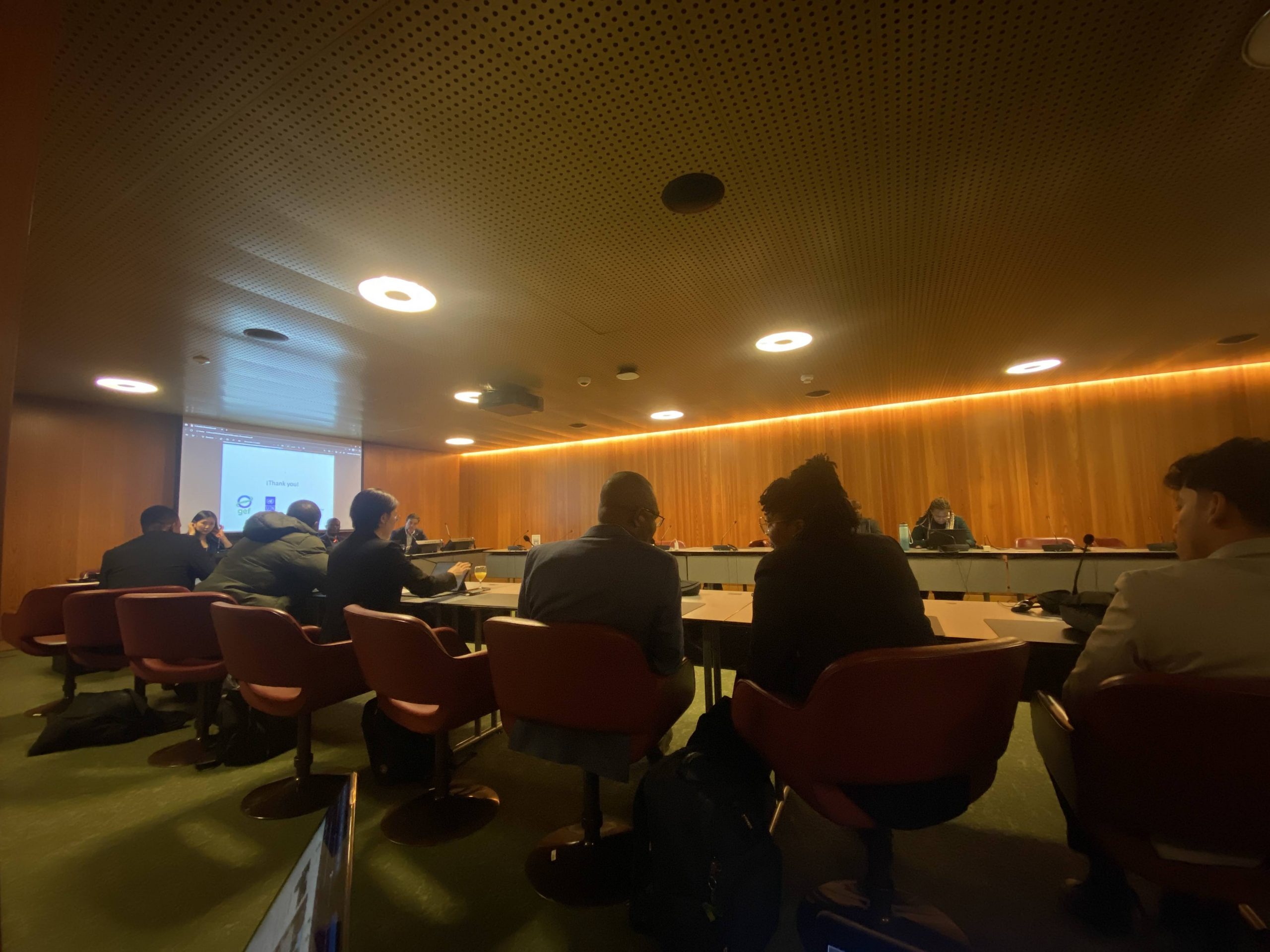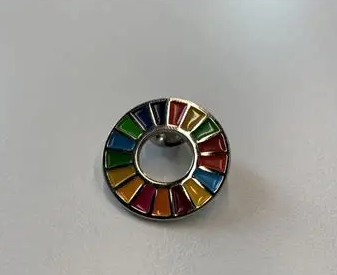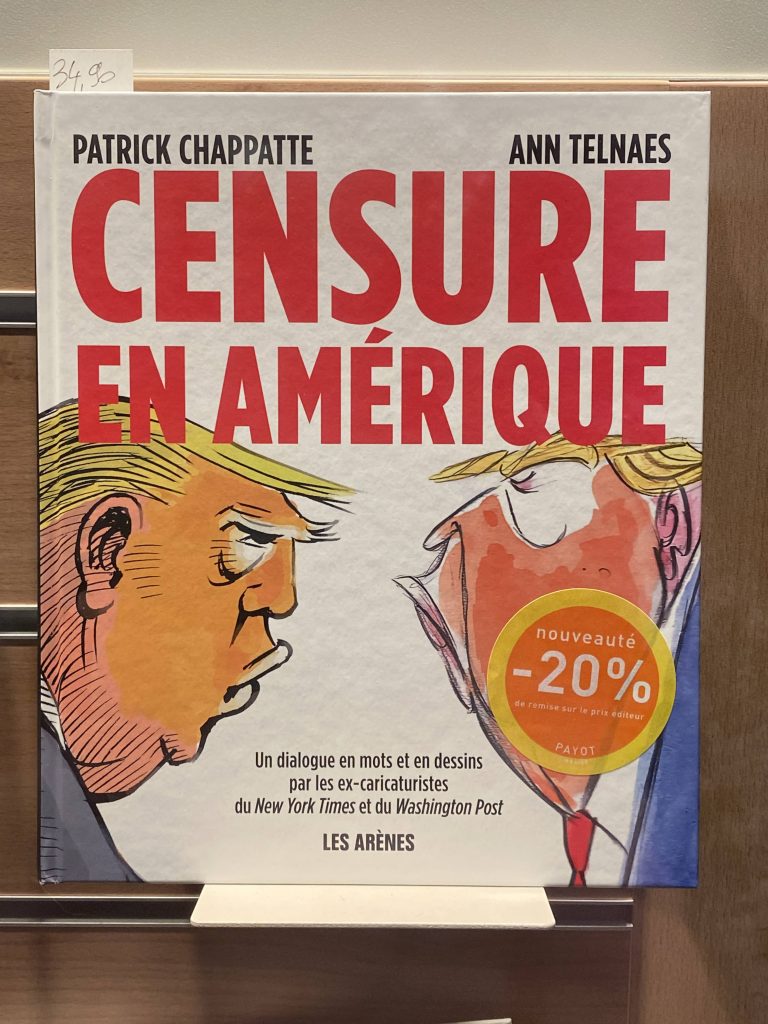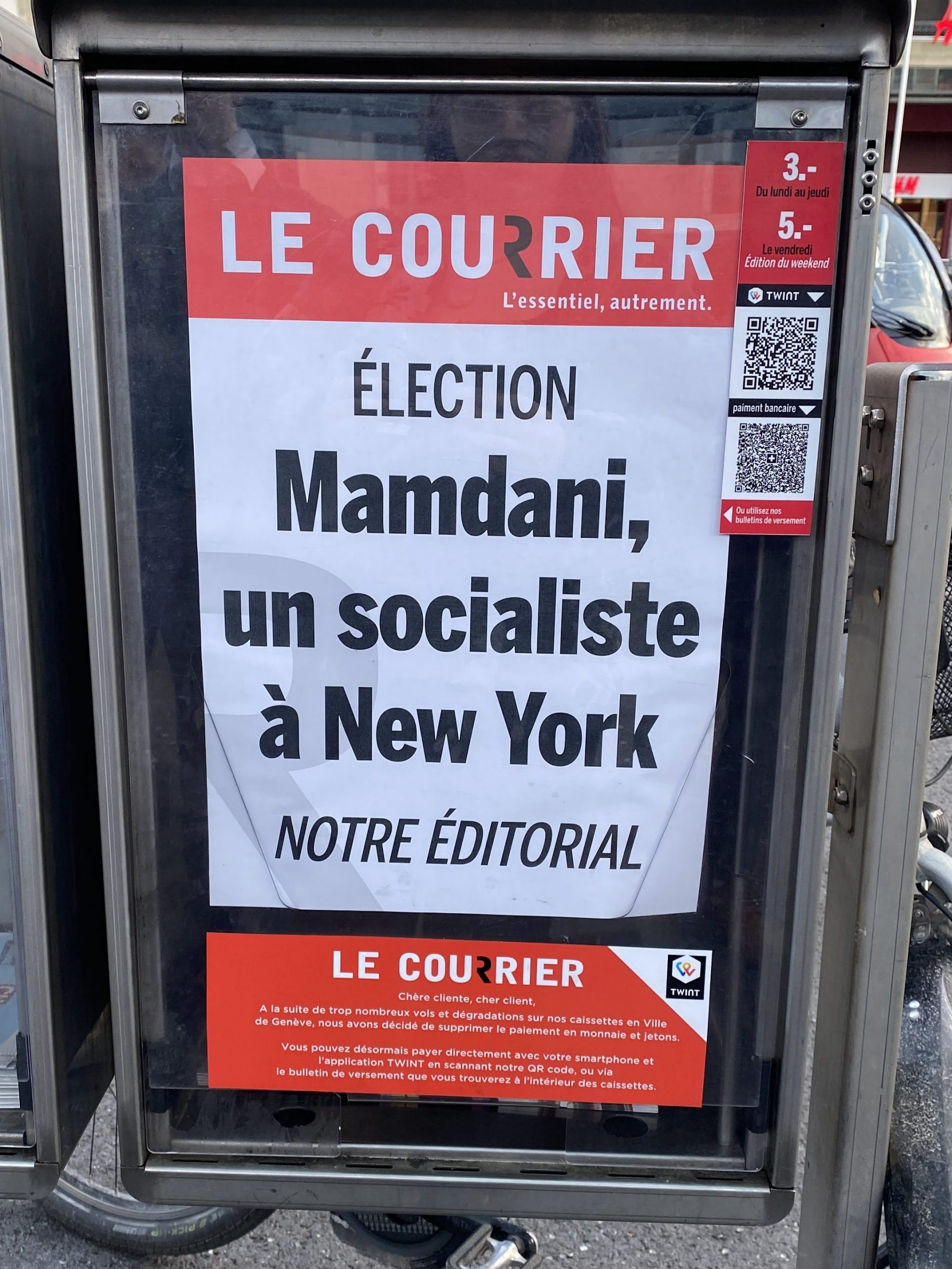By Rylee Smith
Afternoon Plenary
This evening, plenary began at 4:30pm. There were not many observers in the room or countries represented at this time. I found this odd, but a contact group for Artisanal and Small-Scale Gold Mining was occurring at the same time.
This plenary was short, adjourned after 35 minutes of confirming adoptions to the CRP. Adoptions included CRP.16: Activities to address health concerns of women and children in the biennium 2026-2027: Submission by Secretariat, CRP.14.Add1: Draft updates to the guidance on the identification of individual stocks of mercury or mercury compounds exceeding 50 metric tons and sources of mercury supply generating stocks exceeding 10 metrics tons per year, CRP.14.Add2: Draft updates to the appendices to the guidance on completing the forms required under article 3 related to trade in mercury, and Agenda item 7: Dates and venue of the seventh meeting of the Conference of the Parties. .
In regards to CRP.16, accommodations have been accepted for budget 2026-2027, where a few countries raised concerns of non-discrimination from authority figures and a gender action plan that calls for a ranging perspective on gender vulnerability including disabled and youth communities. In regards to Agenda Item 7, consensus decided to go back to the original text proposed by the Secretariat in Document 24.
Both the Indigenous Peoples draft, and UNEP/MC/COP.6/CRP.3 – Mercury waste: Submission by Australia and Japan, are ongoing and going well according to the COP-6 President. Both will be brought into the plenary session tomorrow morning to be adopted.
The COP-6 President held a working lunch meeting with Argentina, The Bahamas, European Union, The United States, The United Kingdom, and Uganda to consult on CRP.15 agenda item 4 (b): iv – Extensions for exemptions. Progress was made to grant India, Thailand, and Bangladesh exemptions to extensions requested. Both India and Bangladesh submitted a request to extend the exemptions pursuant to paragraph 6 of article 6 (UNEP/MC/COP.6/CRP.6 & UNEP/MC/COP.6/CRP.11), I did not find a request submission from Thailand under the working documents on the COP-6 website.
After an adoption was confirmed, the room would clap, signifying the significant progress of COP-6!
Knowledge Lab – GEF-UNDP Experiences on the Elimination of Mercury from Consumer and Healthcare Products
Both Ghana and Ecuador presented on pilot projects, opportunities, and challenges in phasing out mercury-containing products. Ghana’s key findings show that anthropogenic sources are the most significant contributors to mercury pollution, specifically the use of thermometers and sphygmometers, which they want to phase out completely. Ghana plans on reducing UPOPs and mercury releases from the health sector by introducing best environmental practices (BEPs and non-incineration healthcare waste treatment technologies. Ghana also plans on creating more efficient and safe collection and storage infrastructure for existing mercury waste.

Ghana is seeking to introduce intersectional collaboration to create healthcare waste management (HCWM) systems, along with long-term financial planning and sustainable financing mechanisms to create long-term financial stability across the country to support HCWM systems. Alongside these efforts, Ghana wants to develop the curriculum in hygiene schools and also offer comprehensive training for existing healthcare workers and technical staff on operation and maintenance on new mercury-free devices. Discussing existing gaps, Ghana emphasised financial limitation/constraints, insufficient long-term financial investment, awareness and behavior change of the consumer mindset, limited public and professional awareness, and enforcement and monitoring of mercury-containing products. As illegal mercury trade persists in Ghana, upgrades to monitoring mercury imports and improving enforcement methods are necessary. By showing past success of pilot projects, a clear pathway to integrate procurement policies and national healthcare products can be walked.
Ecuador has similar challenges with an emphasis on challenges and results from pilot projects currently in place. Ecuador faces most challenges with mercury added products including, lamps, batteries, thermostats, cosmetics, and electrical devices. These products are not manufactured in Ecuador but imported which has increased the necessity for a national action plan. Results from their current pilot projects include 180.63 kg of avoided mercury (excluding ASGM sectors), 112 kg from electrical-equipment elimination, 24 kg from replacing medical devices in public hospitals, and 26 kg via EPR guidelines on LED maps. Ecuador stressed the need to change the consumer mindset by introducing primary school, university, and public campaigns, partnerships with importers and retailers to control mercury imports, and community pilot projects for lamp collection and disposal systems.
At the end of both presentations, there was a symbol I’ve been trying to understand since we visited the U.N. I bought a circular pin with multiple colors and found out it represents ‘The Global Goals’ in overcoming the world’s mercury challenges.

Although I didn’t know the meaning of the pin when I bought it, I’m glad I did and was shown what it means. The COP-6 convention has further shown me how negotiations and global cooperation is important to reduce mercury pollution challenges. It is extremely important that we all work together to comprehensively solve the global issues on mercury that people may be affected by daily.
Contact Group on Technical Matters
After much discussion around dental amalgam, addition to part 1 of Annex A was adopted and is to be phased out by 2034!
Most notably, after a very long time of negotiating, the world alliance for mercury free dentistry NGO representatives hugged one another. Their accomplishments alongside parties’ efforts and compromise could be felt around the room, finally a future of mercury free dentistry for ALL is visible!
Global Political Views on The United States of America
I have also been keeping an eye out on the news presented in Geneva about the United States as we continue down an unsure and unstable path. On Tuesday, while walking around, the group and I bumped into a bookstore advertising a book about censorship in America with an illustration of Trump talking to himself on the cover in the front window.


With increasing censorship from the media within the U.S, I have found it valuable to gain as much knowledge as possible while abroad on the world’s understanding and views on the United States.
On Monday evening, Mark and I turned on the television in the hotel and while channel surfing, came upon footage of the United States military air striking water vessels in the Caribbean Sea. I didn’t even realize this was happening until we saw the news. It left a distasteful and urgent call to action within my body and mind, I have constantly been talking and thinking about it since.
Alongside this, today while making way to the afternoon sessions of the COP, I saw a newspaper about Mamdani’s win in the NYC mayoral race! I was shocked to see this in international news and as I picked up the copy to begin translating words, I noticed that Switzerland openly calls the genocide in Gaza for what it is. The United States still does not recognize the actions occurring in Gaza as a genocide.
It has been interesting to view the U.S from an outside perspective and I hope to keep finding uncensored news and media once back in the states.